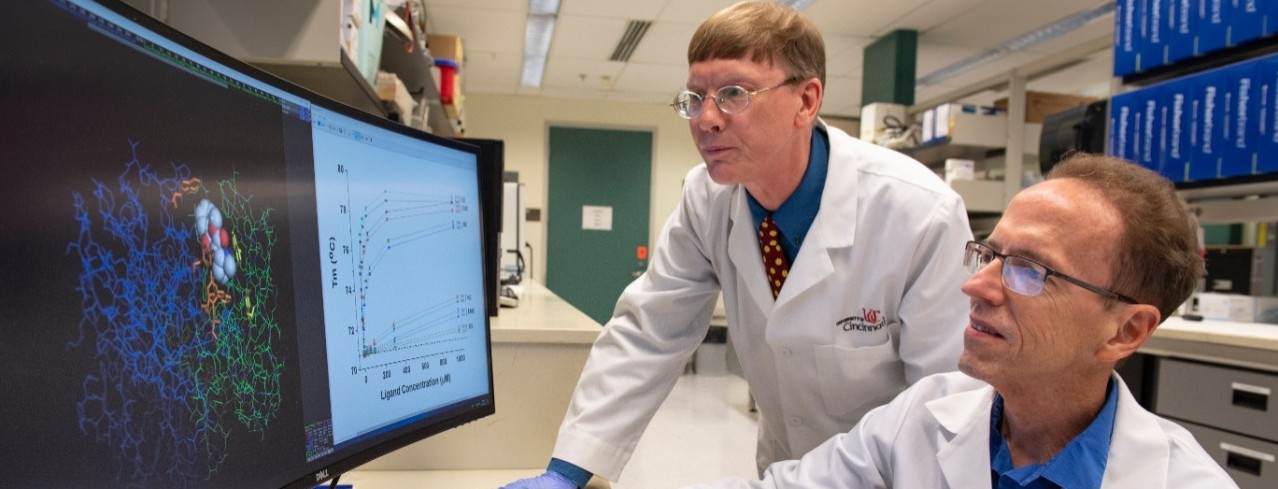
UC professor’s method to treating cocaine addiction highlighted
WVXU, Local 12 report on researcher’s unique approach
The work of University of Cincinnati pharmacology professor Andrew Norman to treat cocaine addiction has been featured by WVXU and Local 12.
Norman and his team at UC and Cincinnati Children's Hospital Medical Center have developed a human-made protein that acts like a regular antibody in the immune system, called a monoclonal antibody, in an effort to treat cocaine addiction. The antibody binds to cocaine and prevents it from entering the brain.
The approach, which is awaiting Food and Drug Administration approval to proceed with first‐in‐human trials, offers hope of a potential treatment for people addicted to cocaine.
“They have to be motivated to want to quit and the cocaine and the antibody will help them quit by having no effect of cocaine," Norman told WVXU. "So they take the cocaine and the cocaine is neutralized and has no effect. And in that way, because it’s not having its effect it won’t induce a relapse response.”
Norman's approach is one that has been successful for other therapies, including COVID-19 vaccines.
“We came up with the idea of taking a so-called monoclonal antibody, and these are specific antibodies, and they are used therapeutically a lot these days for various things, including COVID-19,” Norman told Local 12.
Featured image at top: University of Cincinnati professor Andrew Norman, left, works in his lab. Photo/Colleen Kelley/UC Creative Services.
Impact Lives Here
The University of Cincinnati is leading public urban universities into a new era of innovation and impact. Our faculty, staff and students are saving lives, changing outcomes and bending the future in our city's direction. Next Lives Here.
Related Stories
Before the medals: The science behind training for freezing mountain air
February 19, 2026
From freezing temperatures to thin mountain air, University of Cincinnati exercise physiologist Christopher Kotarsky, PhD, explained how cold and altitude impact Olympic performance in a recent WLWT-TV/Ch. 5 news report.
Blood Cancer Healing Center realizes vision of comprehensive care
February 19, 2026
With the opening of research laboratories and the UC Osher Wellness Suite and Learning Kitchen, the University of Cincinnati Cancer Center’s Blood Cancer Healing Center has brought its full mission to life as a comprehensive blood cancer hub.
Nursing innovation emerges as critical lever in healthcare transformation
February 18, 2026
Recognizing both the urgency and the opportunity, the University of Cincinnati (UC) College of Nursing is taking deliberate steps to position nurses at the forefront of healthcare transformation. It has created an Innovation Strategic Plan and established a dedicated Industry Advisory Board to forge the academic-industry partnerships essential to accelerating nurse-driven innovation.
